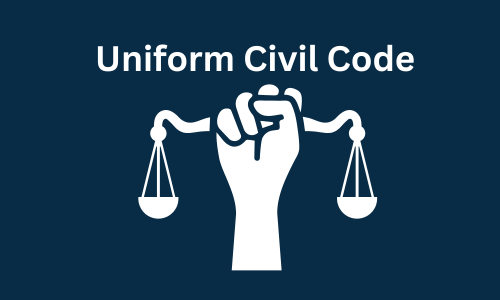What is Uniform Civil Code
Uniform Civil Code: An Overview
INTRODUCTION
The Uniform Civil Code( UCC) is one of the most debated topics in contemporary India. Embedded in Composition 44 of the Directive Principles of State Policy in the Indian Constitution, it proposes the expression of a common set of particular laws governing marriage, divorce, race, relinquishment, and heritage for all citizens, irrespective of religion, estate, or community. While India formerly has a invariant felonious law applicable to all, matters of family and particular law are still governed by different religious canons. The UCC aims to establish equivalency and uniformity in these areas.
What is Article 44?
Article 44 corresponds with Directive Principle of State Policy stating that State shall endeavour to provide for its citizens a uniform civil code (UCC) throughout the territory of India.
Historical Background
The idea of a Uniform Civil Code can be traced back to the colonial era when British administrators codified criminal and civil laws but hesitated to interfere in religious matters. After independence, India’s Constitution makers included UCC as a guiding principle under Article 44, reflecting their vision of a modern and secular state. However, due to India’s cultural, religious, and social diversity, successive governments have struggled to introduce a common code that respects plurality while ensuring justice and equality.
Arguments in Favour of UCC
1.Equality before Law
A common civil law ensures that all citizens are treated equally, preventing discrimination predicated on religion or gender. For case, women’s rights to heritage and divorce aren’t steady across communities.
2.Gender Justice
multitudinous particular laws, especially in matters of marriage and divorce, have been criticized for perpetuating gender inequality. A UCC could eradicate practices that disadvantage women.
3.National Integration
A single civil law fosters unity, overcoming barriers created by different religious practices. It reinforces the principle of secularism that India aspires to uphold.
4.Modernization of Society
UCC would help in aligning particular laws with contemporary values of equality, social justice, and mortal rights.
Arguments Against UCC
1.Threat to Religious Freedom
Critics argue that imposing a uniform law may dilute cultural and religious identities, violating Article 25, which guarantees freedom of religion.
2.Diversity of India
India’s strength lies in its pluralism. Opponents believe that a common code may not respect community-specific traditions and could create social unrest.
3.Practical Difficulties
Implementing UCC across such a vast and diverse nation poses logistical and administrative challenges.
4.Fear of Majoritarian Dominance
There are concerns that the UCC may end up reflecting the practices of the majority community rather than being a neutral code.
Case Laws :-
Sarla Mudgal Case:-
In this case, the question was whether a Hindu husband married under the Hindu law, by embracing Islam, can solemnise a second marriage. The court held that the Hindu marriage solemnized under Hindu law can only be dissolved on any of the grounds specified under the Hindu Marriage Act 1955. Conversion to Islam and marrying again, would not by itself dissolve the Hindu marriage under the act and thus, a second marriage solemnized after converting to Islam would be an offence under section 494 of the Indian Penal Code (IPC).
Conclusion
The Uniform Civil Code remains a complex and sensitive issue balancing equality and secularism with religious freedom and diversity. While its implementation may pave the way for greater gender justice and equality before law, caution must be exercised to ensure it does not erode India’s cultural pluralism. A possible way forward could be gradual reforms, consensus building among communities, and ensuring that the final framework of UCC is just, inclusive, and sensitive to India’s social fabric.


